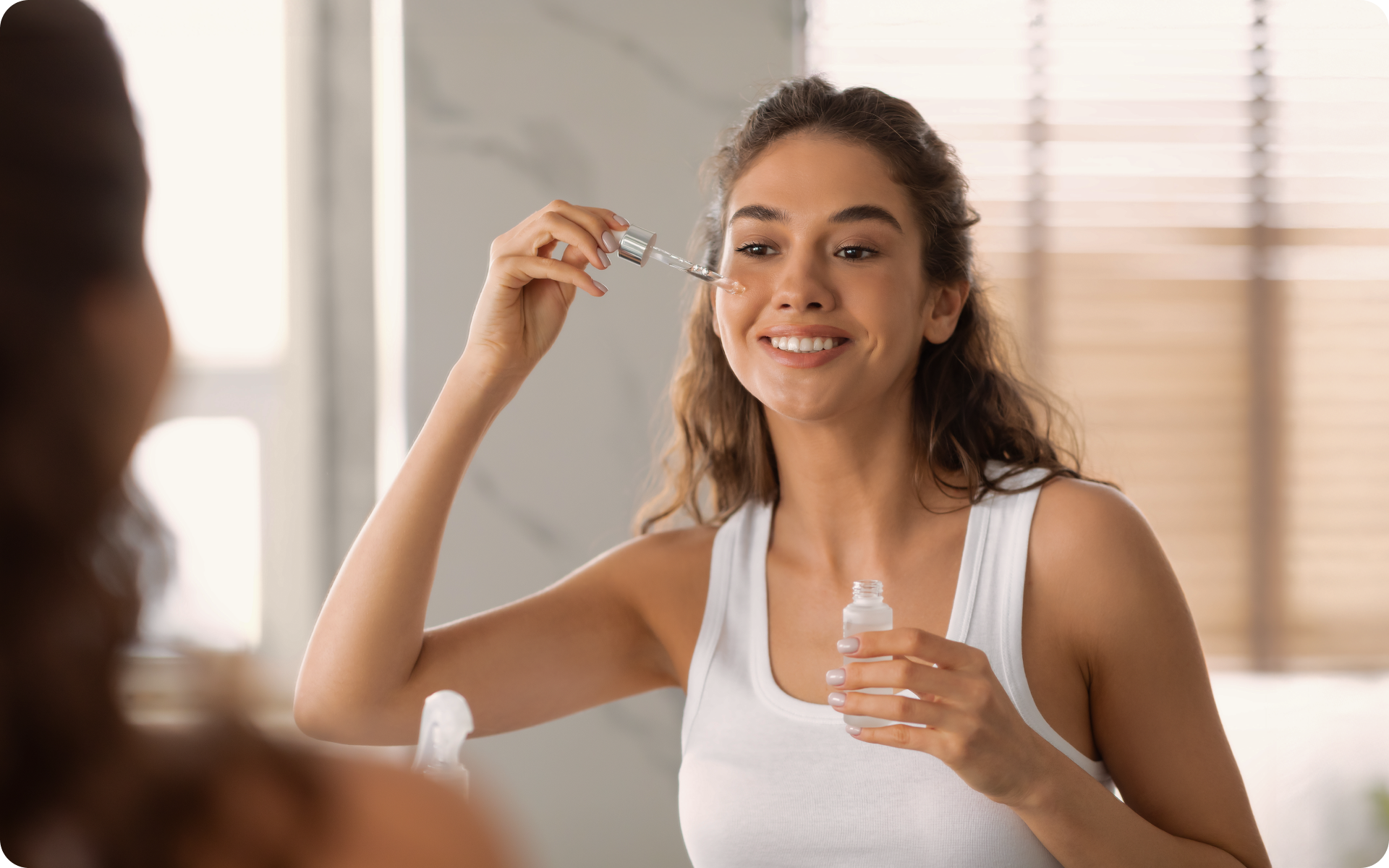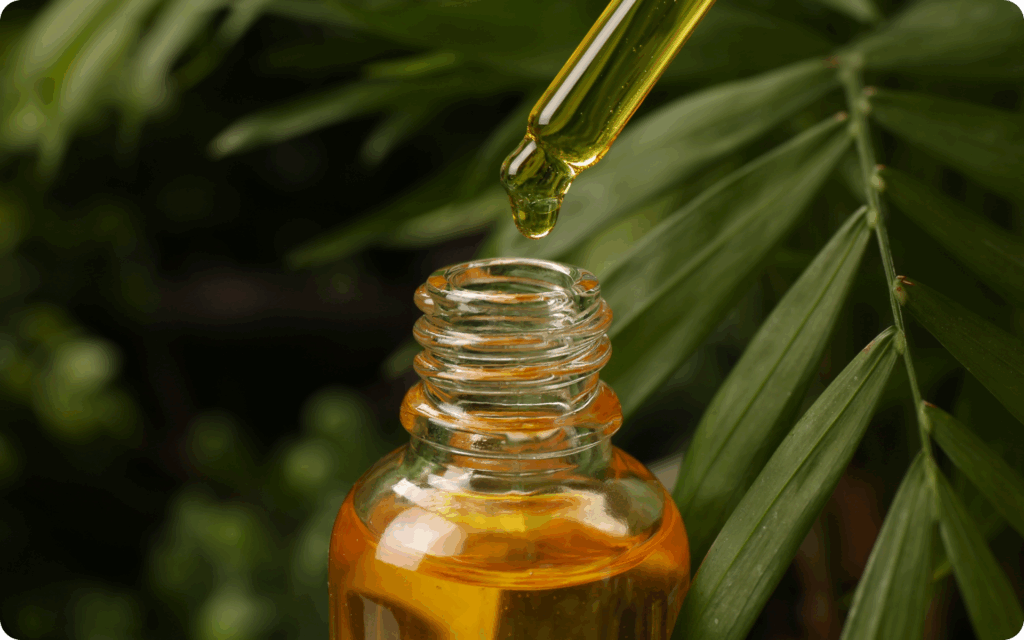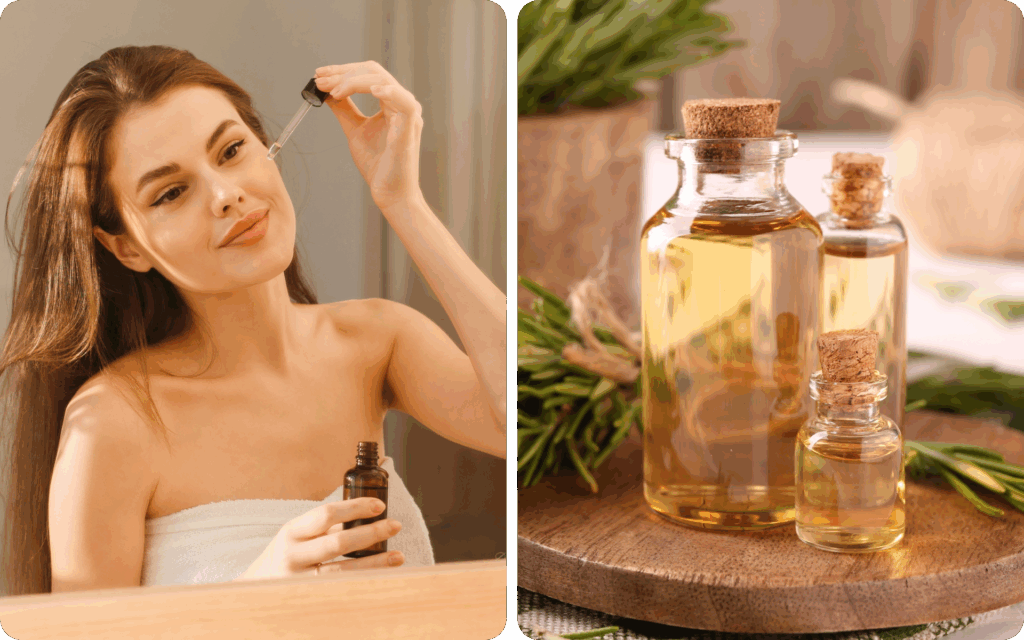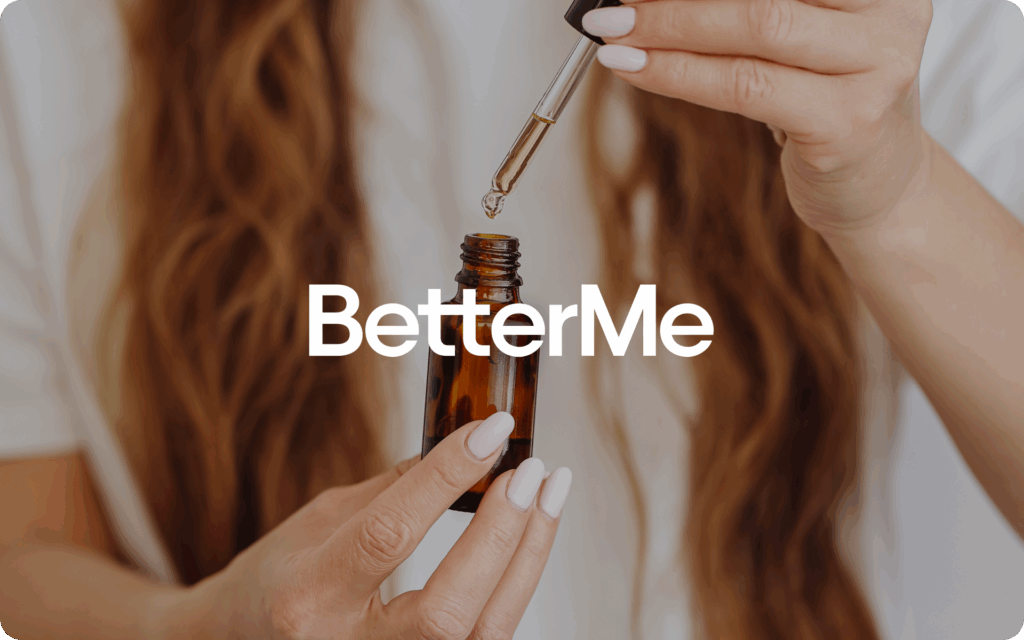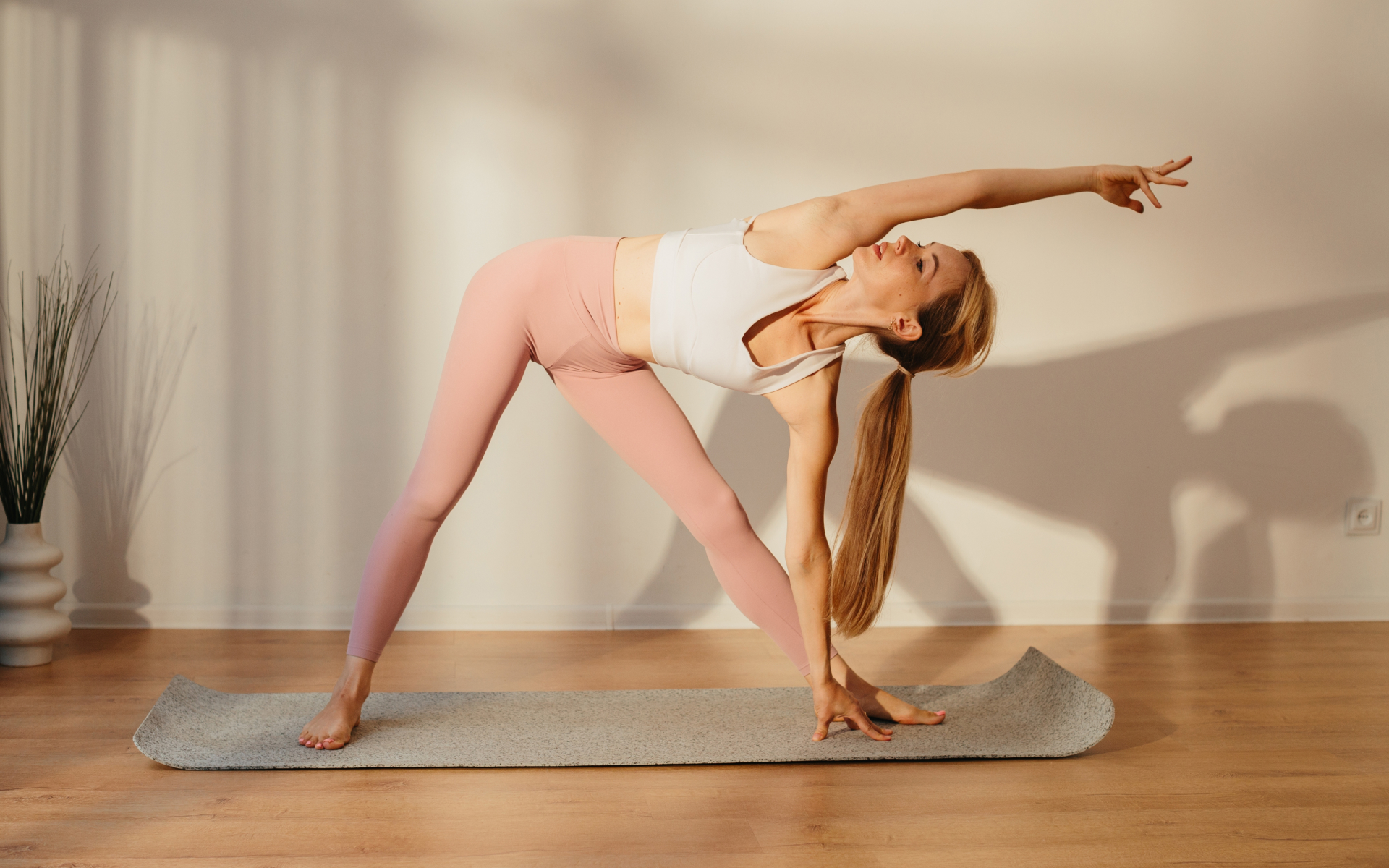Ah, the dreaded signs of aging – wrinkles, sagging skin, fine lines. Unfortunately, the skin is the organ of the body that is visibly affected by age and environmental factors. As you get older, your skin makes less collagen and loses elastin fibers. This causes the skin to become thinner, less firm, and less elastic. At the same time, changes in oil and sweat production can lead to dryness, which makes the skin look less smooth and vibrant (1).
And if you’re like most people, you’ll want to do something about it. The good news is that you don’t have to accept your fate and resign yourself to looking older than you are – there are natural solutions out there that can help reduce the appearance of those pesky wrinkles and lines.
Essential oils can help reverse some of the signs of aging and make your skin look firmer and younger. From powerful antioxidants to nourishing vitamins and minerals, essential oils have a multitude of benefits when it comes to restoring skin’s natural elasticity and keeping it looking youthful for years to come.
Which Essential Oil Is the Best for Skin Tightening?
Essential oils are derived from plants and herbs, which means they’re filled with natural compounds that can soothe, nourish, and rejuvenate the skin. Below, we’ve rounded up some of the best essential oils for skin tightening.
1. Lavender Essential Oil
Lavender essential oil has long been valued for its relaxing qualities. Studies have shown that simply breathing it in can help lower arousal levels and improve focus, thanks in part to compounds such as linalool that influence the nervous system. It’s no surprise lavender remains one of the most popular essential oils worldwide – it’s often used to ease stress, encourage relaxation, and support overall emotional balance (2).
Lavender essential oil isn’t just calming, it can also soothe your skin. When it’s used in small amounts, it may reduce redness and swelling, which will make your skin look refreshed and less puffy (3). Natural compounds in lavender work to fight inflammation, helping your skin feel healthier.
Its gentle, relaxing scent also supports stress relief and better sleep – two things that can make a real difference in how your skin looks. Always dilute lavender oil before you apply it to your skin to avoid irritation.
It’s important to bear in mind that its calming and soothing properties can help relieve stress and promote good sleep. Destressing and sleeping well are two factors that can contribute to how healthy and glowing your skin looks.
2. Rosehip Seed Oil
Rosehip seed oil comes from the seeds of wild roses. It’s rich in antioxidants and fatty acids that support healthy skin (4).
Key benefits supported by research:
- Helps improve skin elasticity and texture.
- Can reduce the appearance of fine lines and wrinkles.
- May help even out skin tone and reduce pigmentation spots.
- Supports overall skin health with antioxidant and anti-inflammatory effects.
A five-week study that used advanced skin imaging (the VISIA system) found that daily application of rosehip seed oil improved wrinkles, skin texture, and redness in participants.
Tips for use:
- Apply to clean skin.
- Consider using sunscreen during the day for extra protection.
Whether you’re a workout beast or just a beginner making your first foray into the world of fitness and dieting – BetterMe has a lot to offer to both newbies and experts! Install the app and experience the versatility first-hand!
3. Geranium Essential Oil
Geranium essential oil is derived from the flowers of a rose-like plant (Pelargonium graveolens). It has a rich floral scent, which makes it an ideal choice for mood-boosting aromatherapy.
Geranium essential oil is packed with antioxidants that help protect your skin from environmental damage. It also contains compounds such as geraniol and citronellol, which may support overall skin health (5).
Research has shown that creams containing geranium oil can:
- Help protect collagen and elastin by slowing the enzymes that break them down.
- Provide antioxidant defense, which reduces damage from free radicals.
- Works to shield the skin from UV damage when combined with sunscreen.
While geranium oil doesn’t contain collagen itself, using it in a well-formulated cream can support firmer, healthier-looking skin over time by protecting the structures that keep the skin smooth and resilient.
Tip: To see the best results, apply it to clean skin and pair with daily sun protection.
4. Frankincense Essential Oil
Frankincense essential oil comes from the resin of Boswellia trees (Boswellia papyrifera), which are native to East Africa. It has a woody, earthy scent and is often used in aromatherapy for its calming effects.
Studies have shown that hydro-distilled frankincense oil (FO) and FO-loaded solid lipid nanoparticles (FO-SLNs) can help protect the skin from aging (6). They:
- Support collagen by boosting procollagen I and reducing enzymes (MMP1, MMP9), which break down collagen and elastin.
- Fight oxidative stress by restoring antioxidant enzymes such as SOD and CAT.
- Reduce inflammation by affecting key pathways that are linked to skin aging (MAPK, PI3K/AKT, NF-κB).
These findings suggest that frankincense oil may help improve skin firmness, texture, and overall resilience. Using nanoparticles enhances skin penetration and provides sustained release of active compounds. Frankincense oil shows promise as a natural way to support youthful-looking skin. Further human studies are required, but early research is encouraging.
Frankincense oil is packed with antioxidants that help protect your skin from everyday damage. It supports collagen and keeps skin firm and smooth. Regular use can help reduce fine lines and leave your skin looking radiant and youthful.
5. Jasmine Essential Oil
Jasmine essential oil is derived from the flowers of a genus of shrubs that are native to tropical regions (Jasminum sambac). It has a sweet and exotic scent that is often used in aromatherapy to reduce anxiety (7).
Packed with antioxidants and anti-inflammatory compounds, it helps support healthy, youthful-looking skin. Here’s how it can benefit your complexion (8):
- Boosts Collagen and Elastin: Helps maintain skin firmness and elasticity.
- Protects Against Aging: Antioxidants fight free radicals and environmental stress.
- Reduces Fine Lines and Wrinkles: Supports smoother, younger-looking skin.
- Deeply Hydrates: Keeps skin soft, fresh, and radiant.
- Evens Skin Tone: Encourages a brighter, more balanced complexion.
Jasmine essential oil may help support healthy aging at the cellular level. Research has shown that it can reduce inflammation and oxidative stress in brain cells, which are key contributors to age-related changes. By protecting cells from these damaging processes, it may help maintain overall brain health and healthy cellular function as we get older (9).
6. Myrrh Essential Oil
Myrrh essential oil comes from the resin of the Commiphora myrrha tree, which is native to North Africa and the Middle East. It has a rich, earthy scent and has been used in traditional medicine for centuries. Research has shown that it contains antioxidants and anti-inflammatory compounds that protect skin cells from damage. These properties make it a supportive addition to a skin care routine (10).
The antioxidants in myrrh help neutralize free radicals, which can contribute to wrinkles and fine lines. Its anti-inflammatory compounds may soothe irritated skin and support overall skin health. Using myrrh essential oil can help skin look smoother and more hydrated. Key benefits include:
- Protecting skin cells from oxidative stress
- Supporting skin hydration
- Promoting a brighter, more resilient complexion
Myrrh essential oil can be used in aromatherapy or applied topically after being diluted in a carrier oil. Always patch-test before first use. Regular use may help maintain healthy-looking skin and support a youthful appearance. Pairing it with a gentle massage can enhance absorption and circulation for an added glow.
7. Grapeseed Essential Oil
Grapeseed oil is a light, non-greasy moisturizer that absorbs quickly, which makes it ideal for oily and combination skin. It offers several skin benefits backed by research (11):
- Rich in polyphenols, it helps protect skin from free radical damage and environmental stress.
- Contains linoleic acid, supporting the skin’s natural moisture barrier and maintaining hydration.
- Its anti-inflammatory and antibacterial properties may help calm irritation and support acne-prone skin.
While it doesn’t directly tighten skin or boost collagen, grapeseed oil is a gentle, nourishing option to protect, hydrate, and soothe skin naturally.
8. Neroli Essential Oil
Neroli essential oil comes from the flowers of the bitter orange tree (Citrus aurantium). It’s known for its fresh scent and skin benefits. One key ingredient, citral, is a strong antioxidant. It helps protect skin from damage caused by pollution, smoke, and UV rays (12). By reducing this damage, citral can help keep skin smooth and healthy.
Studies on citral-rich oils have shown that it can fight signs of aging and support skin repair. Using neroli oil in your skincare routine may help your skin stay radiant and calm. It’s gentle enough for most skin types and adds a natural boost to daily care.
Neroli essential oil contains natural compounds that help neutralize free radicals and may support the body’s natural defense against inflammation. Neroli essential oil has antioxidant and antimicrobial properties, which may help support clearer-looking skin (13).
9. Helichrysum Essential Oil
Helichrysum essential oil is derived from a flowering plant that is native to the Mediterranean region. It’s known for its amazing regenerative and revitalizing properties, which makes it a great choice for skin that needs some extra TLC (14) .
A closer look at the oil reveals that its skin-friendly properties come from a combination of powerful compounds, such as antioxidants, carotenoids, and phytosterols (14):
- Antioxidants, such as neryl acetate, help protect the skin from environmental damage.
- Carotenoids, such as alpha-carotene and beta-carotene, help maintain skin appearance.
- Phytosterols, such as stigmasterol and beta-sitosterol, help moisturize the skin and reduce inflammation.
When it’s used topically, helichrysum essential oil must be diluted with a carrier oil, as it can be quite potent. Laboratory studies have shown that it also has antifungal activity, particularly against Candida species, and some antibacterial effects.
Read more: Intermittent Fasting for Women Over 40: A Guide to Aging Gracefully
How to Use the Best Essential Oils for Skin Tightening
Follow these steps to use essential oils for skin tightening:
Step 1 – Dilute the Essential Oil
Essential oils are incredibly concentrated and should be used in small amounts. The best way to do this is to blend the oils with a carrier oil, and we recommend the following:
- Aloe vera gel – (not an oil), aloe vera gel helps soothe and hydrate the skin and supports healing from minor burns, wounds, insect bites, and eczema (15).
- Coconut oil – rich in fatty acids that can help nourish the skin. Limited studies have suggested that it may be useful for preventing or managing atopic dermatitis. Some skin types may find it too greasy, so it’s best to use it sparingly (16).
- Jojoba oil – moisturizes the skin and supports skin health without clogging pores (non-comedogenic) (17).
- Almond oil – is rich in vitamin E and helps reduce inflammation while nourishing the skin (18).
- Avocado oil – contains oleic acid, a fatty acid, which may support skin health, such as in topical psoriasis treatments (19).
- Argan oil – is rich in vitamin E and fatty acids, helps maintain skin hydration and improve overall skin condition (20).
- Apricot kernel oil – helps reduce inflammation and support skin health (21).
- Black seed oil – may help reduce acne and has antibacterial and anti-inflammatory properties (22).
There are no hard and fast rules when it comes to blending essential oils with carrier oils. The National Association for Holistic Aromatherapy recommends a dilution rate of 2.5% for adults (23). For a simple blend, try adding 15 drops of essential oil per oz of carrier oil. The ratio can be adjusted as needed to suit your skin type.
We’ve discussed ginger essential oil benefits, noting its ability to uplift mood, reduce stress, and promote healthier, glowing skin, which makes it a versatile addition to your self-care routine.
Reasons why BetterMe is a safe bet: a wide range of calorie-blasting workouts, finger-licking recipes, 24/7 support, challenges that’ll keep you on your best game, and that just scratches the surface! Start using our app and watch the magic happen.
Step 2 – Patch Test
Regardless of which essential oils you’re using, it’s always a good idea to do a patch test before applying the blend. There are three reasons why patch testing is a good idea (24):
- It helps you see if your skin might react poorly to the oils before you use them on larger areas.
- It helps to uncover any potential sensitivities or allergies to the oils.
- It gives you a safe way to test for reactions in a small spot before applying the oils more broadly.
To patch test, apply a small amount of the blend to your inner arm. Leave it for at least 24 hours and check for any signs of irritation. If you experience any redness or itching, discontinue use and try another blend.
Read more: Does Getting a Massage Burn Calories?
Step 3 – Massage the Blend onto Your Skin
Once you’ve confirmed that the essential oil blend is suitable for your skin type, it’s time to start massaging it into your skin. Using gentle circular motions, massage the blend onto your face or body. Make sure to cover all areas and be generous with your application. Your skin must be clean and exfoliated for the blend to be effective.
After massaging it into your skin, leave the blend on for at least 10 minutes. This will help penetrate deeper layers of the skin and allow its nourishing properties to take effect. After 10-15 minutes, you may rinse the blend off with lukewarm water. Gently pat your skin dry with a soft towel, and you may also apply a moisturizer to soothe the skin.
You may also leave it on the skin overnight and allow the nourishing ingredients to continue working while you rest.
It’s advisable to use essential oil for skin tightening at night due to potential phototoxicity. Phototoxicity is when the skin becomes more sensitive to UV rays due to a reaction with essential oils. Therefore, it’s best to avoid prolonged sun exposure after using essential oils.
We’ve discussed safe ways to use lemon oil for skin to enjoy its benefits while taking care to avoid sun exposure after application.
There isn’t a single essential oil that exactly mimics the effects of Botox, which works by temporarily paralyzing muscles to reduce wrinkles. However, some essential oils can help improve the appearance of fine lines and wrinkles by promoting skin firmness. For example, geranium essential oil is often praised for its potential to help protect skin and support a more youthful appearance (5). The antioxidant properties of clary sage may support the skin’s defenses against age-related cellular damage (25). Frankincense essential oil has been shown to support skin health by influencing how skin cells respond to inflammation and repair. Studies have suggested that it may help maintain the skin’s structure and overall appearance (26). However, while it supports healthier skin, the results are gradual, and combining it with good skin care practices is the key for noticeable improvements. Rosehip seed oil is one of the best oils for improving skin elasticity. It’s rich in vitamins A and C, which stimulate collagen production and encourage skin regeneration (4). It also helps maintain skin hydration, which is essential for firm, youthful-looking skin. Argan oil is another excellent choice due to its high content of fatty acids and antioxidants that help improve skin elasticity and resilience. Essential oils don’t actually contain collagen, as collagen is a protein and cannot be distilled into essential oils. However, some essential oils encourage collagen production in the skin. For example, rose essential oil supports skin cell renewal and collagen synthesis due to its vitamin C content (27). Similarly, helichrysum oil has regenerative properties that may boost collagen and improve the skin’s structure (28).Frequently Asked Questions
Which essential oil is like Botox?
Does frankincense really tighten skin?
Which is the best oil for skin elasticity?
What essential oil has the most collagen?
The Bottom Line
When they’re used correctly and safely, essential oils can be a great addition to your skincare routine. They help to nourish and hydrate the skin and reduce inflammation. It’s important to always do a patch test before you use any essential oil blend on your face or body and to take note of any phototoxicity risks.
DISCLAIMER:
This article is intended for general informational purposes only and does not serve to address individual circumstances. It is not a substitute for professional advice or help and should not be relied on for making any kind of decision-making. Any action taken as a direct or indirect result of the information in this article is entirely at your own risk and is your sole responsibility.
BetterMe, its content staff, and its medical advisors accept no responsibility for inaccuracies, errors, misstatements, inconsistencies, or omissions and specifically disclaim any liability, loss or risk, personal, professional or otherwise, which may be incurred as a consequence, directly or indirectly, of the use and/or application of any content.
You should always seek the advice of your physician or other qualified health provider with any questions you may have regarding a medical condition or your specific situation. Never disregard professional medical advice or delay seeking it because of BetterMe content. If you suspect or think you may have a medical emergency, call your doctor.
SOURCES:
- Skin Care and Aging (2025, nia.nih.gov)
- Lavender aromatherapy: A systematic review from essential oil quality and administration methods to cognitive enhancing effects (2021, iaap-journals.onlinelibrary.wiley.com)
- Effect of Lavender (Lavandula angustifolia) Essential Oil on Acute Inflammatory Response (2018, pmc.ncbi.nlm.nih.gov)
- The Effectiveness of a Topical Rosehip Oil Treatment on Facial Skin Characteristics: A Pilot Study on Wrinkles, UV Spots Reduction, Erythma Mitigation, and Age-Related Signs (2025, mdpi.com)
- Topical Delivery of Geranium/Calendula Essential Oil-Entrapped Ethanolic Lipid Vesicular Cream to Combat Skin Aging (2021, onlinelibrary.wiley.com)
- Protective Potential of Frankincense Essential Oil and Its Loaded Solid Lipid Nanoparticles Against UVB-Induced Photodamage in Rats Via MAPK and PI3K/AKT Signaling Pathways: A Promising Anti-Aging Therapy (2023, researchgate.net)
- Pharmacological and Medicinal Value of Jasmine (2022, researchgate.net)
- Analysing the Impact of Jasminum Sambac in Cosmetic Applications: A Comprehensive Review (2024, ijpsjournal.com)
- Inhibitory effects of Jasminum grandiflorum L. essential oil on lipopolysaccharide-induced microglia activation-integrated characteristic analysis of volatile compounds, network pharmacology, and BV-2 cell (2023, frontiersin.org)
- Commiphora myrrh: a phytochemical and pharmacological update (2022, link.springer.com)
- Clinical Trial to Evaluate the Effect of Grape Seed Extract-Loaded Hyalurosomes on Skin Wellness (2025, mdpi.com)
- Chemical Composition and Antioxidant Activity of the Essential Oils of Citral-Rich Chemotype Cinnamomum camphora and Cinnamomum bodinieri (2022, pmc.ncbi.nlm.nih.gov)
- Cytotoxic and Antioxidant Properties of Natural Bioactive Monoterpenes Nerol, Estragole, and 3,7-Dimethyl-1-Octanol (2022, pmc.ncbi.nlm.nih.gov)
- Antimicrobial activity and chemical composition of essential oil from Helichrysum microphyllum Cambess. subsp. tyrrhenicum Bacch., Brullo & Giusso collected in South-West Sardinia (2019, sciencedirect.com)
- Pharmacological Update Properties of Aloe Vera and its Major Active Constituents (2020, mdpi.com)
- Health Effects of Coconut Oil-A Narrative Review of Current Evidence (2019, pubmed.ncbi.nlm.nih.gov)
- Jojoba Oil: An Updated Comprehensive Review on Chemistry, Pharmaceutical Uses, and Toxicity (2021, mdpi.com)
- Vitamin E in Dermatology (2016, pmc.ncbi.nlm.nih.gov)
- Avocado Oil: Characteristics, Properties, and Applications (2019, mdpi.com)
- The Importance of Argan Oil in Medicine and Cosmetology (2024, mdpi.com)
- Apricot Kernel: Bioactivity, Characterization, Applications, and Health Attributes (2022, mdpi.com)
- Black Seed Oil Benefits: Are They Real? (2024, health.clevelandclinic.org)
- Methods of Application: Aromatherapy Massage,Body, and Facial Oils (2025, naha.org)
- Patch testing: Uses, systems, risks/benefits, and its role in managing the patient with contact dermatitis (2021, pubmed.ncbi.nlm.nih.gov)
- Plant-Derived Antioxidants: Significance in Skin Health and the Ageing Process (2022, pmc.ncbi.nlm.nih.gov)
- Biological activities of frankincense essential oil in human dermal fibroblasts (2017, sciencedirect.com)
- Unveiling the mechanisms for the development of rosehip-based dermatological products: an updated review (2024, frontiersin.org)
- Effect of Helichrysum Italicum in Promoting Collagen Disposition and Skin Regeneration in a New Dynamic Model of Skin Wound Healing (2024, pmc.ncbi.nlm.nih.gov)
